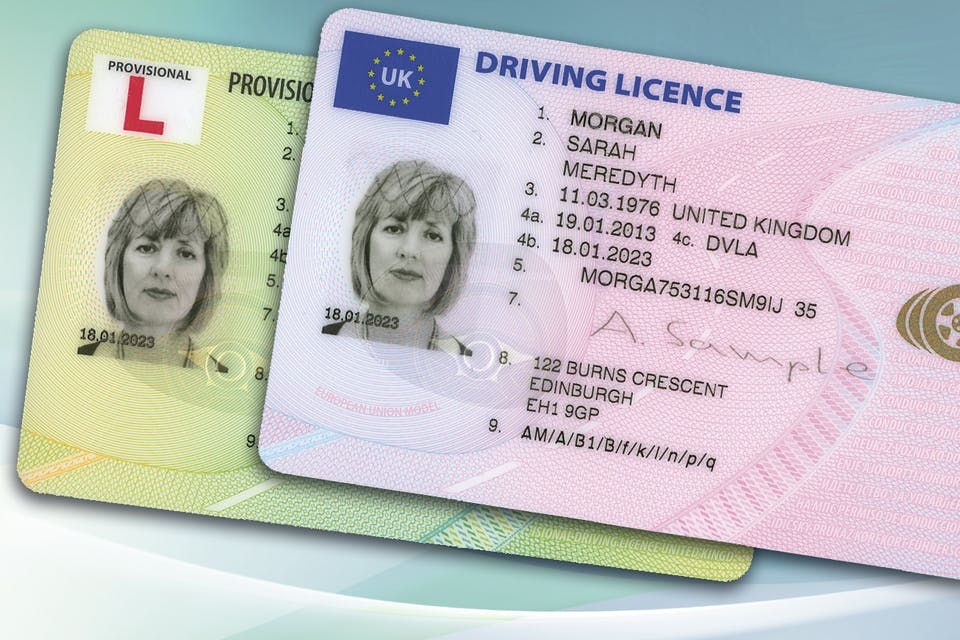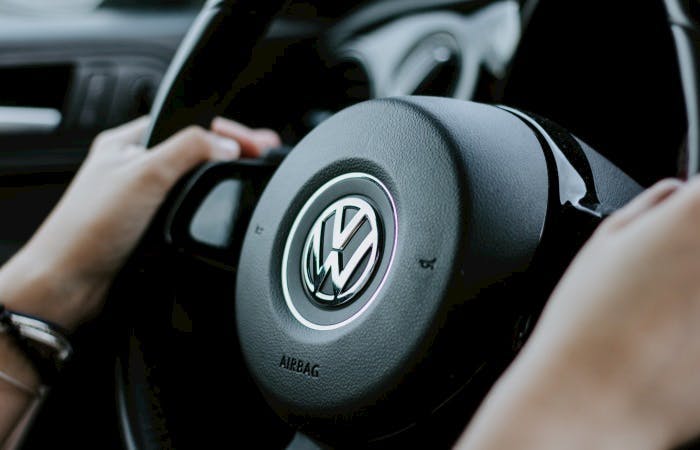What's the Average Number of Attempts It Takes to Pass the Driving Test?
February 14, 2024
•5 min read
Leon McKenzie
Content Writer

Not everyone will be lucky enough to pass their test the first time around. In fact, according to the DVSA, less than half of us do! The average pass rate in 2016/17 was 47.1%. Many factors can determine whether you pass first time, and it doesn't necessarily reflect your level of driving ability. Nerves, unpredictable circumstances and silly mistakes can all get in the way of perfectly capable drivers passing first time.
Failing a driving test is disappointing, sure, but it's nothing to be ashamed of. The best thing to do is learn from your mistakes, book a new test (which we can fast track for you!) and get back on that horse!
So, just how many tests does it take, on average, for someone to pass the UK driving test? Well, the answer is not as straightforward as you might think...
What the stats tell us about the UK driving test
The fact is, those of you pondering about the average driving test attempts it takes people in the UK to earn a licence are unlikely to get a clear cut answer. There hasn't been a study on that specific question large enough to produce a reliable national average. Thanks to the DVSA, though, we do have access to data that can give us a fairly good idea.
The following table presents their statistics on pass rates by attempt for 2016/17:
ATTEMPT
1st
2nd
3rd
4th
5th
6th+
ATTEMPT
1st
2nd
3rd
4th
5th
6th+
As you can see, the pass rates are incredibly similar for people taking up to 4 attempts to pass their test. Using this data, we could estimate that out of 1,000 learners, 958 should pass by their 5th attempt.
However, this assumes that everyone will keep taking tests until they eventually pass. Unfortunately, in real life, some people become discouraged and stop taking tests altogether. This is why it's really important to keep going! Second attempt learners have the slight edge—perhaps suggesting that people might be more likely to pass on their second attempt.
But as this information doesn't actually measure attempts per person, we can't be sure. It wouldn't be surprising, though. Think about it—when you take a second test, you're likely to have overcome a lot of your first-time nerves. The unknown is always a bit scary, but once you have an idea of what to expect, you can just focus on doing your best. For many, it's therefore a case of second time lucky!
Age as a factor
Some smaller studies have looked more specifically at the number of attempts it takes for individual people to pass their driving test. Take Censuswide, for instance. They (on behalf of LV= car insurance) used a sample of 2,004 drivers to conduct a study linking number of tests taken before passing to how safety-conscious people were as drivers. As part of this research, they produced details of how many attempts it takes different age groups to pass the driving test.
These stats are quite positive—particularly for younger drivers. Most people between the ages of 17 and 24 managed to pass the test on their first or second attempt. Plus, more than half of those aged 45-54 passed first time! The entire study is based on a small sample, though, so it doesn't necessarily reflect the national average.
Do first-time passers make the best drivers?

Apart from the financial and emotional toll (not half as bad as it sounds!), does it matter in the long run how many attempts you take before passing your driving test? Not really. In some ways failing on the first try can even be a good thing...
There's obviously a bunch of reasons we can think of to be eager to pass your driving test first time—not least, so you can get on the roads as quickly as possible. Then again, achieving it doesn't mean you're a better driver than those who need a few more attempts to get it right. You might be surprised to learn that studies actually suggest those who pass on the second or third attempt are safer drivers.
Maybe it's overconfidence, or maybe it's just new driver naivety, but one-test wonders are more likely to be involved in accidents. That's the conclusion reached by the Censuswide research referenced above.
In fact, it looks like three practical tests is the sweet spot. According to the findings, third-time passers are less likely to be involved in collisions. They are also less likely to be pulled over by the police for dangerous driving.
So, next time your mates are giving you stick or you're feeling down in the dumps about failing the test, just quote this study and be proud of the fact you'll probably be a safer driver in the future! You can also check out the pass rate in your local area—so you know the exact odds you're up against!
Average driving test attempts: FAQs
How many driving tests can you take?
You can take as many driving tests as you need. Just be aware that you have to wait 10 working days after a failed attempt before booking a new test. If you end up repeatedly failing tests, it might be an idea to take more lessons or change instructors.
How many lessons do you need to take to be able to pass the driving test?
As this varies from person to person, the DVSA does not recommend a specific set of hours. However, a 2014 study by the agency revealed that the average learner requires 42.6 hours of professional instruction, plus 15.7 hours of practice with friends and family before being test ready. PassMeFast therefore recommends between 40 and 50 hours for complete beginners.
Can you drive straight away after passing your test?
Yep, once you've been given your certificate (and thanked your instructor) you're good to go! At least, as long as you've got the right young driver or black box (telematics) insurance cover to do so—driving without insurance is illegal. If you're still riding the high of passing, though, it might be an idea to let someone else drive you back from the test centre while you soak in the good news.
What do I do if I fail my driving test?
First off, try not to be too upset. Many people fail first time—with less than half actually managing to pass. Have a talk with your instructor, focus on areas to work on and get booked in for a new test as soon as possible (10 working days).
Why do you have to wait 10 days between driving tests?
Unfortunately, the DVSA requires all learners to wait 10 days—and rules are rules. It gives their system time to register results and makes sure learners have time to work on areas they need to improve upon. You can re-book your test as soon as you want, so long as the appointment itself is at least 10 working days away.
How does transmission affect pass rates?
Stats from the DVSA show that there is a noticeable difference in pass rates between candidates taking their test in an automatic and those driving a more traditional manual.
What's the most number of driving tests someone has taken in the UK?
Spare a thought for the man from Liverpool who took a whopping 39 tests before securing his licence. Talk about perseverance!
And finally...
Next time you're stressing about whether or not you'll be able to pass your test first time, take a step back and get some perspective. If you do pass first time—well done! You've beaten the odds and should be really proud of yourself.
Then again, if it takes you one or two more attempts, it's really not a big deal. Plus, you've probably learned some valuable lessons along the way and will eventually take on the open road with a stronger understanding of how to approach driving safely.
Got your test coming up soon? Make sure you're fully aware of how the driving test will actually be marked. Knowing the different types of driving fault is an essential part of avoiding them, after all!
And if you'd like tips for your big day, check out the top 5 ways to impress your driving test examiner.
Subscribe for driving advice, offers & more
We'd love to let you know about our courses, news and offers via email. You may unsubscribe at any time.
Star Genie Limited trading as PassMeFast. Company number 10093359
Copyright © 2024 owned by Star Genie Limited
PassMeFast, Blue Tower, MediaCityUK, Salford, M50 2ST
